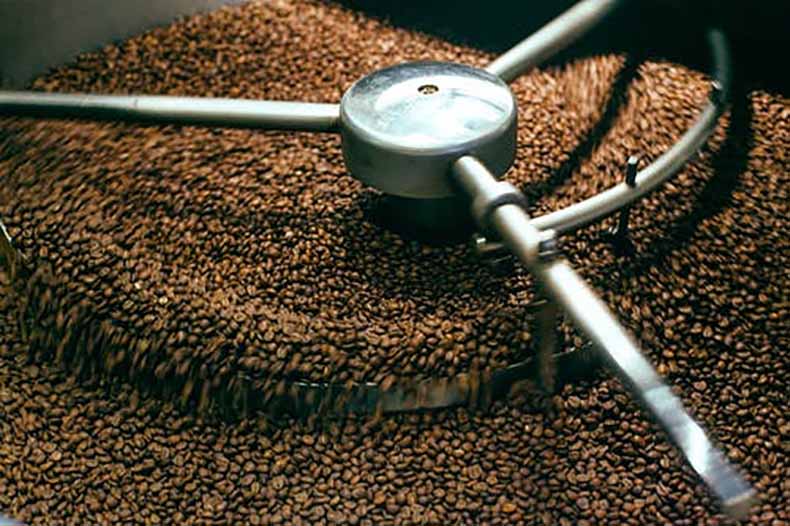Learn The Basics About How To Start Grain Processing Business In 2021
Grain processing is a physical process where the kernel is cleaned, adjusted to an appropriate moisture content before being mechanically reduced to a desired particle size to produce flour and other products.
While refining reduces the nutrient content of grains, milling of grains keeps desirable grain components and removes poorly digested compounds and contaminants. When you cook grains, on the other hand, it increases the digestibility of nutrients and phytochemicals.
Common examples of processed grains are white flour, white rice, white bread, and degermed cornflower. Breads, cereals, crackers, desserts, and pastries are made with refined grains, too.
Grain processing involves fractionation. This is the practice of separating bran, germ, and endosperm from each other. It doesn’t involve either chemical or thermal treatments and so, it does not bring about any decontamination of the grain.
While the business of grain processing is a highly lucrative one, you need to consider the following factors before starting one:
- Efficient Flour Milling Equipment: Where to buy automatic or low-cost wheat flour milling machines? How to select the manufacturers?
- Factory Setup: How much land is needed to build a complete factory for wheat flour production?
- Supply of Raw Materials: Are there stable wheat seeds supplied at factory price?
- Preservation and Storage of Grains: What is the recommended storage option?
- Health and Safety: What percentage of dust is in the end product?
- Processing Quality: How is quality ensured in the processing?
- Project and Running Cost: How much does it cost to set up a medium or large-scale wheat flour processing plant? How many laborers are needed? What are the daily running expenses?
A good insight into all these points will boost your knowledge and prepare you adequately.
Read: Low-Cost and No-Cost Ways To Grow Your Business
Mechanical Processing Tools and Devices
In today’s grain storage and processing facilities, the bulk of the processing is reliant on machines. There is a variety of them, and each serves a specialized function. The professionals behind HS Automation stress the need for specialized machines and technologies to properly process the grain There are also the spare parts in case you need a repair and the professional servicemen.
The mechanical conveyors, for example, are vital in moving grain, flour, feed, and other products. Bucket elevators are used for the vertical transfer of grain. Horizontal transfers are done by means of the belt and screw conveyors.
Paddle and belt conveyors raise grain at lower/ shallow elevations but screw conveyors can actually be used for steep and vertical angles. Keep in mind that it is more expensive to use a screw conveyor than a bucket elevator. Gravity is also used either by confined flow (i.e., by chute or spout) or by unconfined flow (i.e., open drop, such as filling a silo, bin, or container).
Assessing and Managing Quality
Regardless of the type of grain processing, quality assessment is integral to efficient processing. Right from the stage of blending grains poured in from different sources, quality needs to be ensured. In the milling of wheat to white flour, about 75% of the flour quality is determined by the quality of the incoming wheat. This means that the mill adjustment and environmental management factors contribute to the remaining 25%. This goes to show that while efforts must be made to ensure quality with the machines and environment, more efforts must be put into the assessment of grain quality in order to safeguard the quality of the product—in this case, flour.
Where there is a quality deficiency, the flour may not meet the specific processing requirement for the second-tier productions which could be large-scale bread manufacture, pastry production, or processing into cookies and confectionery.
Health and Safety
At all stages of grain storage and grain transfer both from low storage elevators to sizable ones and vice versa, there is some amount of dust associated with the loading, unloading, transferring, storing, and processing of the grains, and this has significant implications for human safety, human health, and environmental air quality. Grain dust, which is rich in organic carbon, is highly flammable and can detonate or ignite, leaving behind catastrophic results: fatalities, injuries, and loss of property. You have to apply industry standards in moving your grains from source to processing.
Preservation and Storage of Grains
Improper storage of the grains like rice, wheat, corn, oats, and pulses can result in grain loss. Grain loss occurs when microbes, insects, mechanical damage, enzymatic activities, and problems of heat cause a loss of quality in the grains at the time of storage. 20% of global grain loss is caused by improper storage facilities. You can prevent this in your grain processing firm by using the right method of storage and by selecting efficient machinery for processing.
Cost of Raw Materials
The cost of getting your grain raw material is affected by the quality of the grain you’re looking for. Apart from quality, the prices of precious metals like gold, stock market fluctuations, Forex exchange, and the type of grain can also influence the price. You need to plan your grain acquisition budget carefully with these factors in mind.
Apart from the cost of raw materials, spending on quality equipment, land and labor are essential to running a successful grain processing business. Like every agro-based business, there will be lots of sacrifices to pay at the beginning. However, with due diligence, you’ll find it’s quite fun.







